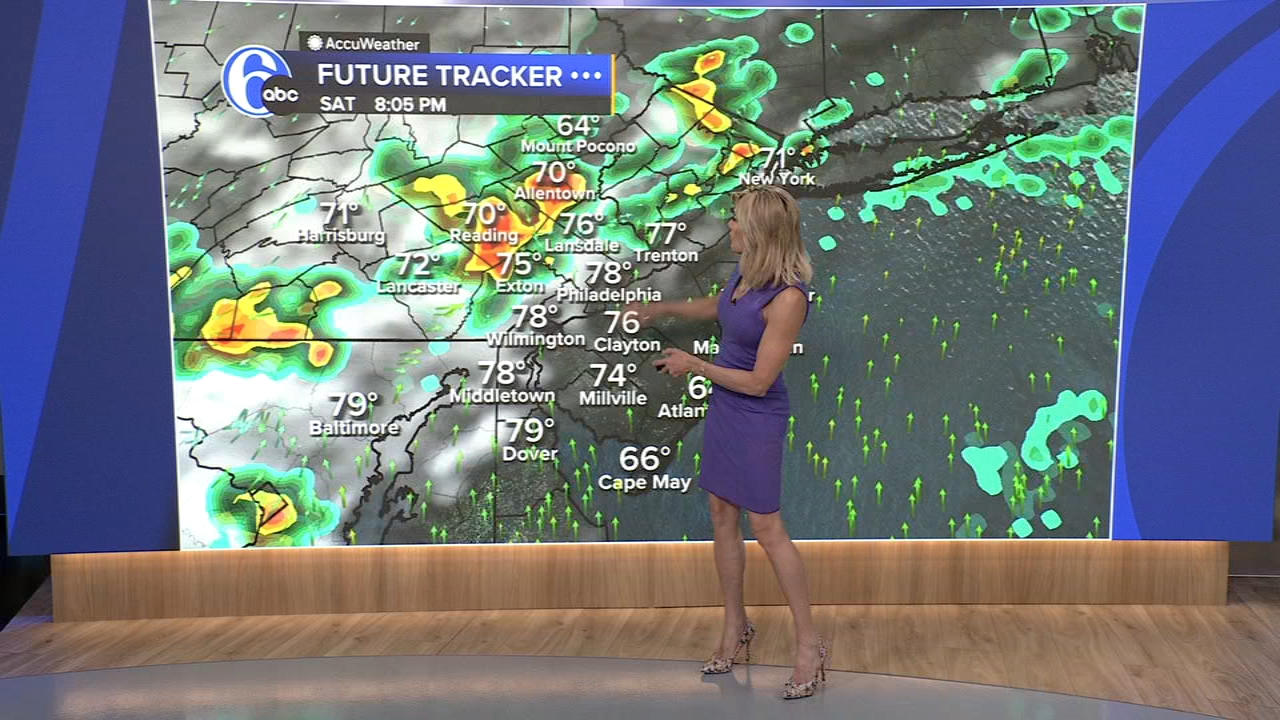Gov. Murphy says no new reopenings in NJ 'for some time' due to COVID variants

TRENTON, New Jersey (WPVI) -- New Jersey Governor Phil Murphy said the state will not be doing any more reopenings "for some time" because of the emerging variants.
"My guess is we won't be opening capacity for some time now because of the caseload," Murphy said on CNN Monday morning.
Murphy was asked last week about whether vaccinated people would have to carry around a proof of vaccination, an idea that came under attack by the Republican Governors Association.
Murphy said "that's all politics" and he would defer to CDC recommendations. "Do I think it's a crazy idea? No," he said.
Just days ago, capacity at New Jersey restaurants, gyms and health clubs, recreational facilities and arcades, and personal care businesses increased to 50% Friday.
Indoor gatherings increased from a limit of 10 people to 25, while outdoor gatherings went from 25 to 50 people.
The new limits don't apply to religious services or ceremonies, political events, weddings, funerals or memorial services, which have higher or no limits. Seating at bars is still prohibited.
Outdoor interstate youth competitions also resumed, but the ban on indoor interstate competitions remains in place.
Still, Murphy had cited numbers on Friday that were "still uncomfortably too high," including a daily positivity rate that averages 7% and 2,000 coronavirus patients in hospitals, when explaining why the state has been cautious in its reopening plans.
"We have the same concern," he told CNBC Friday. "We know we've got the New York variant, the UK variant, I guess the Brazil variant. We are part of the same reality a year ago. The densest part of the nation, we are the densest state in the nation, right on top of the New York Metro reality. Invariably, what hits them will hit us and vice versa. So we are watching that all of that very closely."
Last week, Murphy said he expected to have all schools open for full-time in person learning by the start of the 2021-2022 academic year.
The state has now distributed more than 3 million COVID-19 vaccines, with 1.1 million people fully vaccinated.
Additionally, beginning on Monday, March 29, frontline essential workers in the following categories are also eligible for vaccination:
--Food production, agriculture, and food distribution
--Eldercare and support
--Warehousing and logistics
--Social services support staff
--Elections personnel
--Hospitality
--Medical supply chain
--Postal and shipping services
--Clergy
--Judicial system






